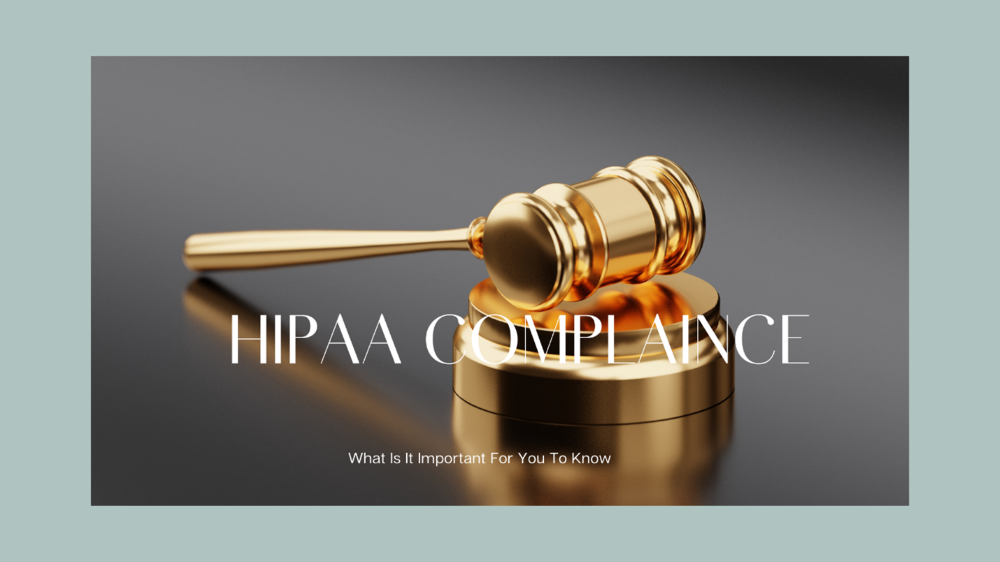HIPAA Compliance (Health Insurance Portability & Accountability Act):
The Health Insurance Portability and Accountability Act (HIPAA) sets the standard for sensitive patient data protection. Companies that deal with protected health information must have physical, network security measures in place to ensure compliance with this law – they can’t just rely on their internal systems! Covered entities are any business involved directly or indirectly providing healthcare services including insurers, providers of medical equipment such as insulin pumps which store personal settings like blood sugar levels, etc., wellness programs at work buildings where employees may need treatment from time-to2time via company-sponsored insurance plans. Any subcontractors and other related businesses must also comply with the standards.
HIPAA Compliance History
This act ensures that your health insurance company can’t hold onto any info about you, even if they wanted to.
A lot has changed in the world of healthcare since 1996 when it passed into law with President Clinton’s signature on it – including greater portability for Americans’ personal information which will hopefully help keep them safe from being stalked or hacked as well!
HIPAA compliance rules were enacted primarily to:
- “The healthcare industry is one of the most vulnerable to data breaches, identity theft, and fraud. To modernize its flow of information we need legislation that protects consumers from these risks while also addressing limitations on coverage—like pre-existing conditions.”
The U.S Department of Health and Human Services (HHS) is responsible for implementing the HIPAA Privacy Rule, which was created as a result of an executive order issued in 1996 by then-President Clinton mandating that sensitive patient health information be protected from disclosure without their knowledge or consent.
THE HIPAA PRIVACY AND HIPAA SECURITY RULES
The HIPAA is a federal law that regulates the healthcare industry and sets nationwide standards for protecting your personal information. The security rules cover certain types of data, like medical records or credit card numbers-but not all privacy rules you can be protected by these rules!
The Security Rule puts in place the privacy and security protections that covered entities must have to maintain individuals’ electronic PHI. The Office for Civil Rights is responsible for ensuring compliance with this rule by utilizing voluntary activities, as well as civil money penalties if necessary.
The Need and Importance of HIPAA Compliance in Healthcare
Back in 1996, when the legislators realized that HIPAA was going to be needed more than ever before due to digitization and businesses’ need for secure data protection. Health insurance ensures patient privacy while medical professionals maintain their privacy too!
- HIPAA gives people the right to request copies of their medical information and edit it as they see fit.
- We all have a right to our privacy, and we should never share information about ourselves without express permission. But for some procedures such as billing purposes or reporting injuries that fall under legal obligations (gunshot wounds), consent isn’t necessary!
- The Act enables patients to be in control of their own medical destiny.
How Does HIPAA work?
The two key aspects of HIPAA are the privacy rule and security rule.
HIPAA privacy rule:
The HIPAA privacy rule codifies the types of data that constitute protected health information (PHI). This includes any records related to your healthcare, like insurance cards and medical files.
HIPAA security rule:
The HIPAA security rule outlines the responsibilities of each organization that handles electronically protected health information, or ePHI. This means there are many things you can do to keep your patient data safe from hackers and snoopers!
Any organization in the healthcare industry that processes ePHI is a covered entity, which means they must follow HIPAA rules. This includes healthcare providers, insurers, and clearinghouses to name just three of many examples!
Important Updates on HIPAA Changes
As the healthcare industry moves towards digitalization, cyber security becomes more important than ever. With so many changes in HIPAA compliance taking place on an annual basis, it is difficult to keep abreast of all new developments and prepare accordingly when they do come about. What can be expected this year?
The implementation of blockchain technology for privacy-enhancing uses within our medical records systems will help us protect patient identities while also reducing costs associated with data storage fees across various channels like EHRs (Electronic Health Records), PACS (Periodic Computerized Physician Order Systems), or pharmacy databases—just some examples where Blockchain could make a real difference
The changes coming to HIPAA are finally here. HHS CSC has announced that 2021 will be the year for some serious revisions, and they can all be found on either their Newsroom or Journal website with more detail than ever before!
Some highlights of the expected 2021 HIPAA update include:
- Allowing patients to inspect their own PHI in person and take notes or photographs of it.
- The federal government is now requiring that health providers post fee schedules on their websites for PHI access and disclosures.
- In the last few years, data theft and identity fraud have become a major problems. In response to this growing concern for privacy rights among consumers as well as businesses alike who store customer information on their servers or databases without proper protection from hackers looking out just gains access can now be provided with much shorter deadlines than before- 15 days instead of 30!
- Healthcare operations is a broad concept, but adding care coordination and case management will help better define it.
HIPAA compliance is really important, don’t you think? That’s why 2021 needs to be monitored and reviewed.
